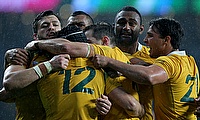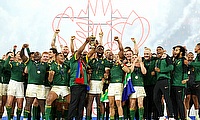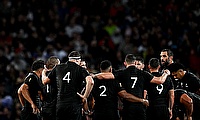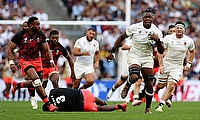Talking About the Man in the Middle
Despite being, what I consider, the best sport on the planet it is fair to say that rugby is a complicated game.
Football is fantastically simple in concept and accessible to all, that's partly why it is so popular across the World. If you take a football anywhere on the planet people know what to do with it. Take a rugby ball on the other hand and the majority of people look at you dumbfounded.
There are a plethora of facets of the game, each of which has a plethora of rules. To the outsider the breakdown is almost incomprehensible, the off-side line can be difficult to judge and mauls and scrums appear the same. With all of these facets of play, laws and general complications it is not wonder that referees have a difficult task every time they take to the pitch.
I have the upmost respect for referees. Week in, week out they run onto a pitch knowing that they are going to upset someone, that they way they interpret the game will not please both sets of players and that despite their best efforts they will not be able to directly apply every law in the rule book. Referees will always divide opinions, but recently there seems to be a wave of negative publicity streaming towards the man in the middle.
If we rewind to the rugby world cup and that now infamous red card for Sam Warburton in the semi-final. The man in charge of the game, Alain Rolland, immediately came under heavy fire from fans, players and critics alike. However, under the laws of the game Rolland made the correct decision and that in my opinion cannot be disputed.
Many said that the stage and enormity of the game should have been taken into consideration. This for me is irrelevant, if an offence is worthy of a red card in the 70th minute then it also is in the 2nd minute. Others were quick to point out inconsistencies between referees in the tournament and slated Rolland for following the letter of the law where his colleagues hadn't.
One of the main arguments used to vilify Rolland was that he had ruined the game as a spectacle. Those that made this arguement are right in their views, the game was ruined as a spectacle because of the red card but here lies a weekly dilemma for referees; should they apply the letter of the law or let the game flow in order to create a spectacle for supporters?
In reality referees must choose to let some offences go in the interest of the game. If every crooked feed at the scrum was penalized, if every breakdown offence was pulled up and if every marginally forward pass was brought back we would have no game. Rugby would turn into a stop start game and eventually turn supporters away.
Of course, if referees did start applying the letter of the law in every situation players would soon have to change their ways for the good of the game. However, it should be down to the IRB and referee chiefs to bring in this change of mindset step by step.
Let's take the scrum for example, which is currently a complete farce. The most infuriating aspect of the scrum for me is not the constant resetting, but the crooked feed from scrum halves thus rendering hookers useless.
Next up, skin tight shirts making it nigh on impossible for props to bind. I would go as far as removing the hit from the process and not allowing players to push until all players were bound. Simple changes that would quickly remove the constant resetting of scrums and take away the frustration of supporters.
Another area that is a constant battle is the breakdown. I spoke to a local referee in the lead up to this article. He says that despite all of the new laws, the breakdown continues to be the hardest part of the game to officiate. The laws may be clearer now and largely there is agreement about how these should be interpreted, but that does not make the breakdown easy to officiate.
I tried my hand at refereeing during a training session and could instantly see why the breakdown is a mess. Often the view is blocked by the volume of bodies and it is impossible to make out which body part belongs to which player. Add to this keeping the offside line and checking each player enters from behind the ruck and the referees must constantly switch his gaze to account for all aspects of play. You get a totally different perspective as you do from in the stands or by watching on the television.
I know of numerous supporters who claim that their side would win every game if the breakdown was officiated to the letter of the law. These supporters also tend to agree with their players indiscretions at the breakdown or their high tackles.
It seems that the referee is becoming an easy target to blame, just like in football. No referee, especially professional, would deliberately favour one side over another. Looking objectively, there are very few games that have been spoilt by bad refereeing. Although a small sample, during 10 matches assessing the refereeing decisions in detail, I would not say the result was directly affected by a wrong decision.
We are all passionate about our sides and naturally become disappointed when a result goes against us.
We will remember decision that go against us and choose to forget those ones that benefitted us. But next time spare a thought for the man in the middle; the man who cannot do right whatever he does, who has to juggle between laws and keep the game flowing. He may make a mistake, but he is human after all.








